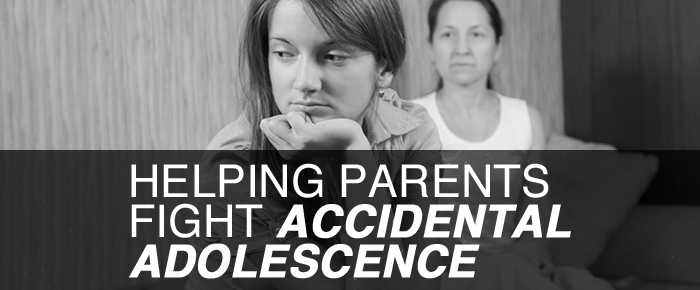There are 3 stages to parenting.
STAGE 1. Until your child is around 4 years old, you are in the “physical labor” stage of parenting. Your world revolves around Changing Diapers, Sleep Deprivation, Potty Training, and Car Seats. All you want is a nap. This stage is defined by physical labor.
STAGE 2. When your child is 5 – 11 years old you are in the “sweet spot” stage of parenting. Nothing is perfect, but this is about as good as it gets. You get to see the world all over again through the eyes of your child. In this stage, your child truly believes that you are larger than life. They can dress themselves, go to the bathroom by themselves, and they sleep a little bit longer. This stage is marked with a lot of fun.
During the “sweet spot” years, parents get drunk with satisfaction over the joy of parenting. Many times they don’t even acknowledge that there is a 3rd stage of parenting that is fast approaching.
STAGE 3. When your child is 12 – 18 years old, you are in the “emotional labor” stage of parenting. This stage is ruled by waiting up all night, puberty, dating, driving, and curfews. Most parents I talk to who have been through this stage would gladly the exchange physical labor of their child’s infancy for the emotional labor of their adolescence.
The problem comes when parents don’t take the time to prepare for the “emotional labor” stage. I call this Accidental Adolescence.
Many parents roll along having a blast through the summer of the 5th grade year. Then, without any warning, their sweet child morphs into a grumpy, moody, no-fun version of their former selves. Parents might not initially recognize that this is due to a hormone cocktail working its way through their child’s pubescent brain. They simply take it as rebellion or disobedience.
Parents react with anger. Their brand new teenager reacts with even more anger. Parents counter. Teenager responds. And the crazy cycle is well on its way.
The hurt feelings that happen in this crucial transition pave a path for conflict through the whole adolescent stage.
So how can middle school ministers stop the madness of Accidental Adolescence?
Here are 4 quick tips for guiding parents through this process….
- START EARLY. If you don’t do this already, you should hold a “Help, I’m about to Have a Teenager” class for the parents for 4th and 5th graders in your church. If you can partner with your children’s ministry to educate parents about their child’s upcoming transition, you can better prepare them to respond to the wild mood swings of puberty in a healthy way.
- HELP PARENTS OPEN THE LINES OF COMMUNICATION WITH THEIR CHILD – BEFORE THEY HIT PUBERTY. Parents should prepare teenagers for puberty. I’ve heard horror stories of teenagers getting their first period or nocturnal emission and believing they were dying. No one educated and prepared them for the changes that were coming. And worse, instead of taking it seriously, many parents make a joke of it. As a middle school minister, you have an opportunity to set up parents of teenagers as reliable guides through a very scary journey to Adolescence. Equip parents with some kind of tool that helps them have an important discussion with their child – prior to puberty.
- COMMUNICATE REGULARLY. If you don’t have a Parent E-mail List, start one today. You don’t have to be an expert to communicate with parents of middle schoolers. You only need to be an encourager. Tell them consistently in your emails to respond to the mood swings of their teenager with “as little emotion as possible”. Teach them how to respond in a safe, loving way to the changes taking place between the childhood years and the teenage years.
- CREATE OPPORTUNITIES FOR FORGIVENESS. It’s pretty impossible to completely avoid hurt feelings between parents and their middle schoolers. As middle school ministers, you are amazing at creating meaningful spiritual experiences for students. I can’t help but think that you could apply some of that genius to regularly creating creative opportunities for middle schoolers and their parents to re-connect through forgiveness. Make that a regular rhythm in your ministry.
Accidental Adolescence is a disease that can be prevented. As a middle school minister, you have the opportunity and responsibility to help prepare parents of middle schoolers for what they are about to face.


